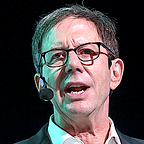How and Why Donald Trump Believes He Won the 2020 Election
It ain’t what you don’t know that gets you into trouble. It’s what you know for sure that just ain’t so.
– Mark Twain
Does Donald Trump actually believe he won the 2020 election which if he does, might explain his consistent vociferous attacks on anyone who says he didn’t?
I’m guessing that he actually does.
That is because he is like many people, you and I know in our personal and professional lives, who justify any of their behavior by steadfastly believing what feels to them as their good intentions.
Donald Trump and the people I am referring to in your and my life don’t wake up in the morning thinking, “Who can I hurt or harm today?”
What they do wake up with is having a very clear idea of what they want to do that is untempered and unrestrained by the facts, reality or — perhaps the most detrimental to their interactions with other people — empathy and concern for what others want and need that may be different.
Given that they wake up clearly and simply wanting what they want without out any conscious intention to hurt others, when other people feel hurt by their behavior, these individuals think, “It must be those other people’s problem, because I had no intention to hurt them, I was simply doing what I wanted and feel entitled to do.”
However, you may ask, how are we to understand their hurtful and bullying behavior when it occurs?
When they are clear about what they want and feel entitled to do and it is thwarted, they become frustrated and belligerent, because they had already worked up a head of steam and momentum moving in the direction of fulfilling that desire. And momentum feeds their feeling of power and they are like a dog with a bone. Once that occurs it is like trying to stop an airliner after it stops taxying and begins down a runway to take off.
Then when in addition to being thwarted, they are criticized, their belligerence “takes off” and barrels into outright hostility.
Finally, when a future they were counting on happening with no backup plan is taken away from them, they feel it is stolen and go into free fall and will bring all forces — especially a political base that would still vote for them if they shot someone — at their disposal to change that outcome.
Anyone who has dealt with an addict or alcoholic who attempts to take that drug or alcohol away from them has experienced a similar reaction and response where that addict or alcohol cannot conceive of life without their drug of choice.
If in all of Donald Trump’s life he has been addicted to power and bullying and rolling over anybody who gets in his way of achieving it, doesn’t it make sense that he finally discovered the equivalent of the drug “ecstasy” and his “Olympic Gold Medal,” when he became the most powerful person in the world?
Several star and Gold Medal winning athletes go into a similar free fall when after pouring all their effort and purpose into achieving that singular goal it is suddenly gone and they realize that their entire identity was wrapped up in its pursuit. When that happens, they not infrequently plummet into depression, drug use or even suicidality to deal with the pain.
Is it possible that all of Donald Trump’s life has been in the pursuit of power with becoming the most powerful person in the world his one and only goal and that once that was taken away, he too went into free fall?
Douglas MacArthur ruefully proclaimed, “Old soldiers never die, they just fade away.”
That may apply to old soldiers or usual politicians, but it is a plan that is unacceptable to Donald Trump.
Instead, he appears to be following a different path proclaim by Dylan Thomas when he decreed, “Do not go gently into that good night… rage, rage against the dying of the light.”
